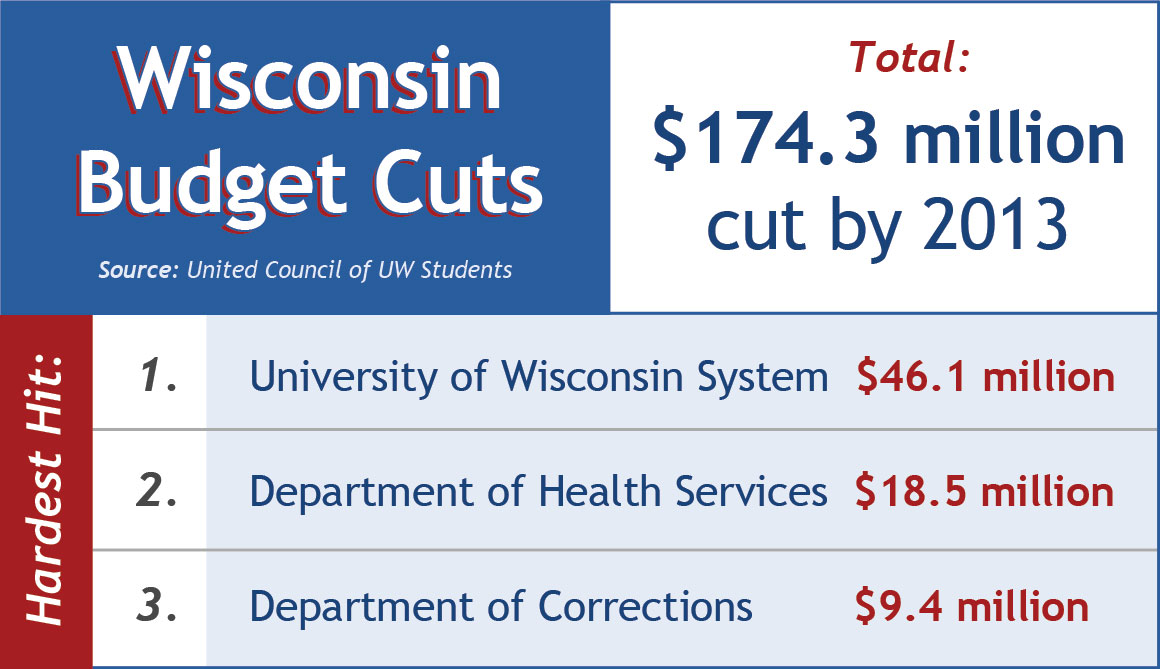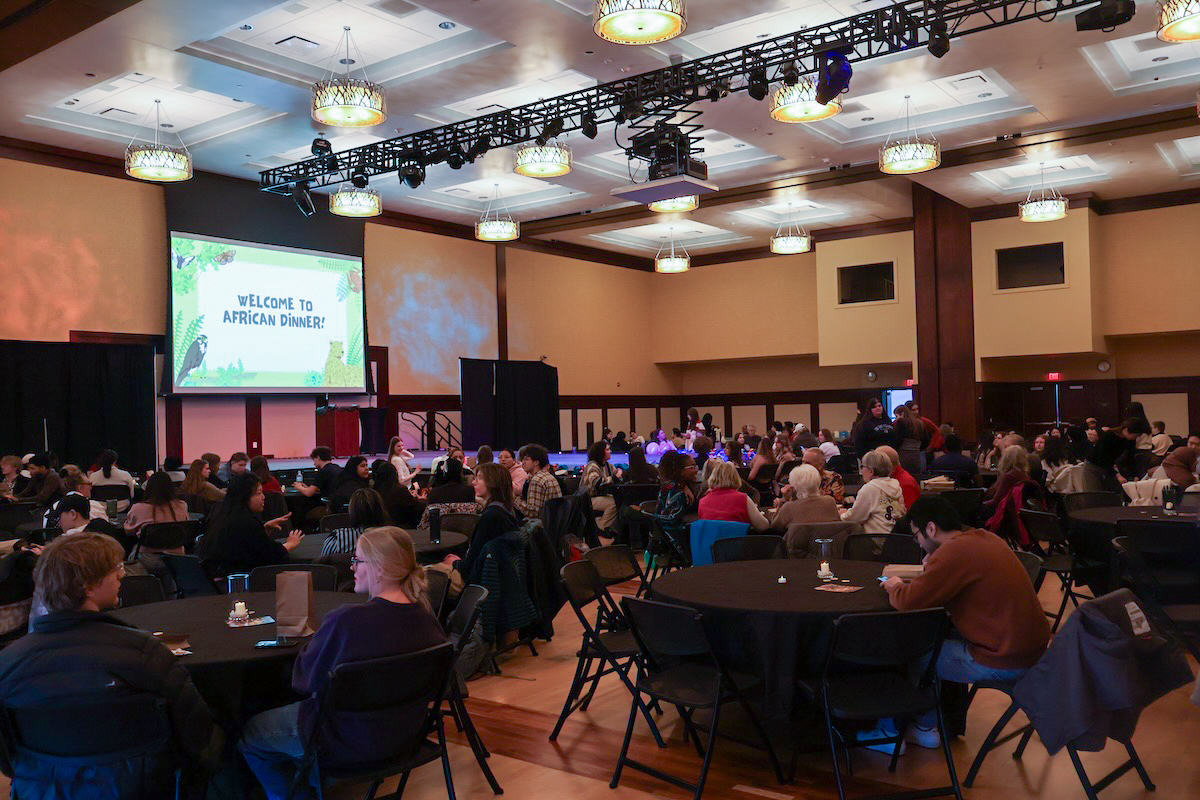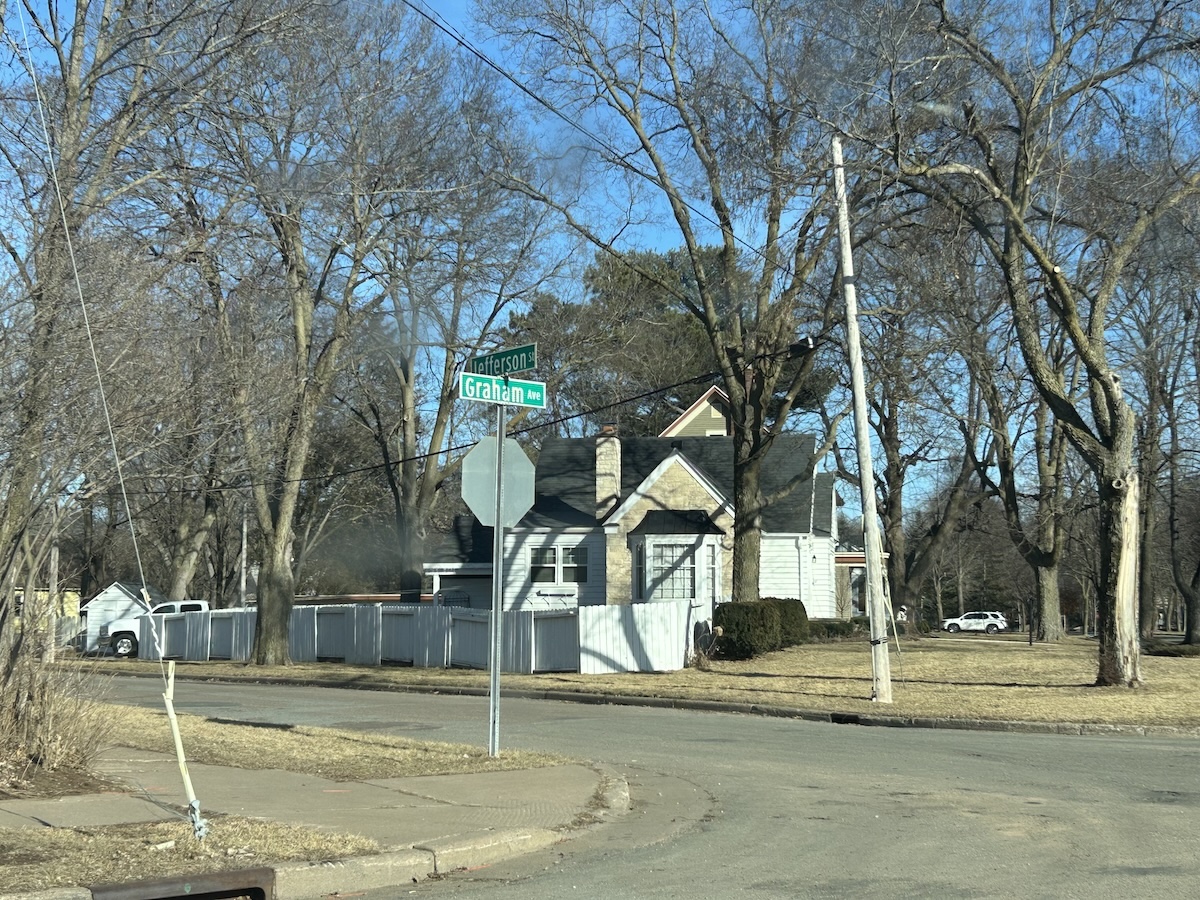Despite opposition by students and UW officials, the Joint Committee on Finance passed a budget cut of an additional $46.1 million to the UW System on Feb 16.
This lapse adds to the biggest cut in the history of the UW System in one year, totaling $296.1 million, according to a press release from the United Council of UW Students.
Dave Gessner, assistant chancellor for budget and finance at UW-Eau Claire, said the latest reduction is the largest he’s seen in the last 10 years. He said the timing means most of the impact of this year’s part of the lapse will be felt this current semester.
Geoff Peterson, professor of political science, said he is disappointed it feels like the university is being singled out and getting hit harder than other parts of the budget.
“Everyone around here understands that the budget is tight,” Peterson said. “But the fact that we’re taking such a disproportionate chunk of the hit is really hard for the moral here,” he said. “It makes people think that the state doesn’t value higher education as much as it used to.”
Gov. Scott Walker raised tuition on students by $107 million, adding hundreds of millions of dollars in new student loan debt, according to a press release sent Feb. 13. Additional effects from these cuts are fewer students graduating on time, loss of faculty and cuts in business development.
In order to generate savings, Gessner said class sections will be cut along with entire classes, making it harder for students to get the classes they need to graduate.
Gessner said the university is attempting to generate savings not only by changing class schedules, but also by hiring back fewer ad-hoc teaching staff and delaying hiring throughout departments.
“The idea was to minimize the impact on students’ academic careers, but it might mean fewer classes to choose from,” Gessner said. “Some students might encounter some problems with being able to get classes that they need.”
According to the press release, with these additional cuts, the university is facing cuts in faculty and in teacher retention funding. Gessner said professors teaching upper division courses are now more likely to teach lower division courses than they have in the past couple years.
“For continuing professors — those that are tenure or tenure-track — they may be teaching some classes this semester and in the future that perhaps they haven’t taught for a while,” he said.
In a press release dated Feb. 16, Courtney Morse, executive director of the United Council of UW Students, said “Today’s students are already creating new technologies and moving forward in emerging industries, but they are also facing obstacles created by a lack of investment in higher education that impede on their path to graduation and success.”
Despite his disappointment, Peterson said it is important to look at the budget cuts as a practical political matter.
“I think the government’s view is that the UW System complains about budget cuts, yet, continues to function,” Peterson said. “There’s a big difference between adding 10 or 20 students to a class and releasing prisoners from jails. That is a harder budget cut to sell to the public than cutting funding from a university.”
Seth Hoffmeister, president of the United Council of UW Students, said in a press release dated Feb. 16 that the lack of faith in students is “disturbing.”
“For years we have seen students and the University System deprioritized and defunded,” he said in the release. “The implications are already being felt by students, their pocketbooks, and the quality of their degree.”
However, Peterson said he thinks the cuts are forcing discussions about curriculum between neighboring UW System universities, which could be a positive short-term result.
“These cuts are forcing discussions about curriculum, including consolidating resources like printing catalogues and centralizing tech services,” he said. “At the same time, that creative thinking only goes so far.”
Gessner said the more serious affects of these reductions won’t be felt until years down the road. He added he is skeptical of the lost funding returning to the UW System, and questioned who, in 10 or 15 years, will have access to higher education due to cost.
“By the time it becomes apparent that it was a blunder to not have better educated young people at the university level, it will be too late,” Gessner said.








